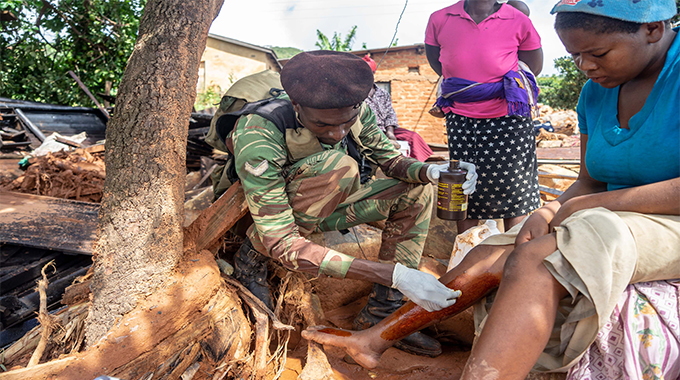Letters to the editor: Cyclone Idai, what now?

Editor – Regarded as one of the most devastating tropical cyclones to affect Africa and the southern hemisphere as a whole, Idai reared its ugly head.
Over 700 were killed and hundreds are still missing in neighbouring Mozambique, Malawi and Zimbabwe.
Dubbed as one of the worst humanitarian crises, thousands of families are still in shock and anguish, with relief and rescue efforts still underway.
Strong winds and floods spared no one and nothing during the pandemonium, stripping off food, shelter and infrastructure the people were clinging onto.
Accounts of how people were harangued and mauled by the natural disaster are truly saddening especially when as a region we’re still recovering from the devastating Cyclone Dineo that occured in 2017.
With the country already facing drought due to the El Nino effect, many had unknowingly celebrated the forecasted rain only to be welcomed by grief and mayhem.
As the three affected nations mourn and search for the courage to soldier on, it leaves a lot to think about for the government, institutions, engineers and stakeholders in order to alleviate effects of future natural disasters.
More research and extensive study should be carried out in the collection and analysis of the changing hydrological data and weather patterns.
Computer software should be used to simulate extreme flooding events in a bid to come up with flood management plans.
Innovative approaches as such will also help engineers to identify, plan and design scour critical bridges and structures along flood prone areas.
Overland flow path channels-which can drain excess floodwater away from houses can also be identified and constructed.
Flooding is a natural and inevitable part of the weather cycle but several strategies from all stakeholders can be applied to mitigate the effects.
The psychological, economic and social scars of this aftermath will not subside nor be forgotten, but we must be prepared for the lurking similar future catastrophes.
Kraspos Kujinga, National University of Science and Technology, Civil and Water Engineering student










Comments